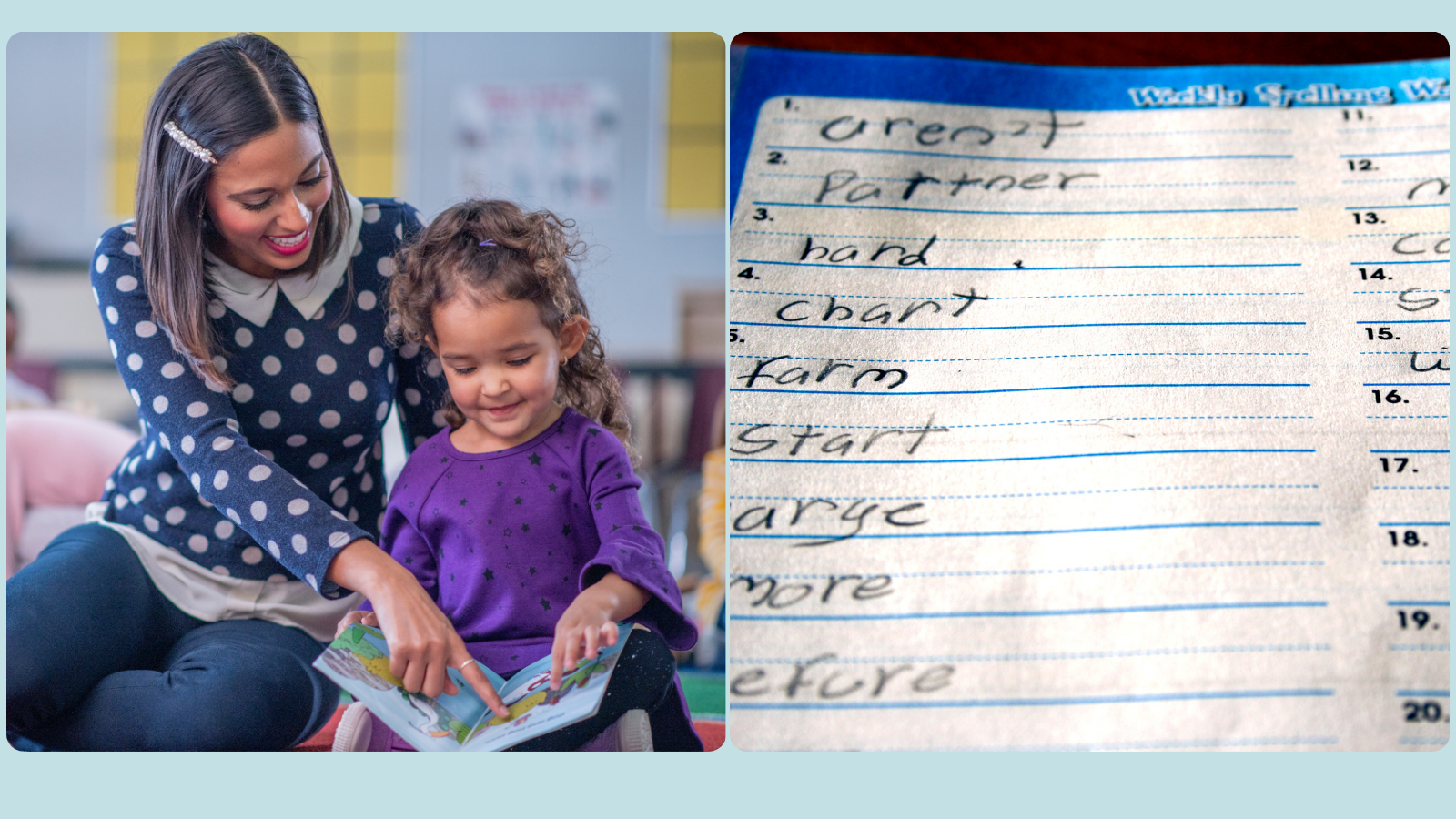When assessing Kindergarten and Year 1 students for reading difficulties, we should always test spelling. Here’s why.
A while back, a worried parent asked me why I was planning to test her early Year 1 child’s spelling skills when the child’s main difficulty was reading. Understandably, she didn’t want her child to be tested without a good reason.
It was a great question! I explained that early reading decoding and spelling skills are linked. But I was unhappy that I couldn’t answer the question more precisely or with more detail.
So I went away and looked at the research:
Should we test spelling when assessing late Kindergarten and Year 1 students with early reading difficulties?
Yes.
There are two key reasons:
(a) Spelling in Kindergarten is a proxy – a good stand-in – for phonological awareness and letter knowledge (e.g. McBride-Chang & Ho, 2005).
Many young school-aged children spell by segmenting spoken words into phonemes (speech sounds) and then assigning letters to the phonemes. For example, when spelling the spoken word /maet/, many late Kindergarten children can segment the spoken word into three speech sounds – /m/, /ae/, /t/ – then assign or link letters to the speech sounds – <m>, <a> and <t> – to form the written word ‘mat’. This is an example of early ‘encoding’.
(The opposite of ‘encoding’ is ‘decoding’, an essential reading skill where you look at a written word, e.g. ‘mat’, identify each letter – <m>, <a>, <t> – link each letter to an associated speech sound – <m>, <ae>, <t> – and blend or ‘synthesise’ them together to produce the spoken word /maet/.)
(b) Post-Kindergarten spelling is a significant predictor of word reading in later grades.
Early spelling has a unique role in the prediction of later reading and writing performance. Specifically, post-Kindergarten spelling is a good predictor of later reading success even after controlling for post-Kindergarten phonological awareness, reading and letter-sound knowledge, and pre-Kindergarten vocabulary (e.g. Treiman et al., 2019).
By the end of Kindergarten, typical learners of English writing have some knowledge about which spellings are appropriate for specific words (e.g. when spelling irregular words, e.g. ‘said’) or positions in words (e.g. knowing to use ‘ay’ when spelling ‘tray’, instead of <ai>, <ae> or <a>). In other words, spelling is more than just a proxy for phonological awareness and letter-sound knowledge.
Should we spend time explicitly teaching children with reading difficulties how to spell?
Yes, again.
You can read why here.
Clinical bottom line
Early spelling has a unique role in predicting later reading success. When we assess young school-age children with reading difficulties, we should always assess their spelling: both for information about their phonological awareness skills and letter-sound knowledge; and because it is a predictor of word reading ability in later grades beyond measures of phonological awareness and letter-sound knowledge.
Related articles:
- Kick-start your child’s reading with speech sound knowledge (phonological awareness)
- Teaching the alphabet to your child? Here’s what you need to know
- Is your child struggling to read? Here’s what works
- Should we spend time teaching our kids to spell? If so, how and what should we teach them?
- Why is English spelling so hard? Why and how should we teach it?
- What I think about when I meet a child who can’t read (video blog)
Principal source: Treiman, R., Hulslander, J., Olson, R.K., Willcutt, B.B., & Kessler, B. (2019). The Unique Role of Early Spelling in the Prediction of Later Literacy Performance. Scientific Studies of Reading, 23:5, 437-444.

Hi there, I’m David Kinnane.
Principal Speech Pathologist, Banter Speech & Language
Our talented team of certified practising speech pathologists provide unhurried, personalised and evidence-based speech pathology care to children and adults in the Inner West of Sydney and beyond, both in our clinic and via telehealth.








